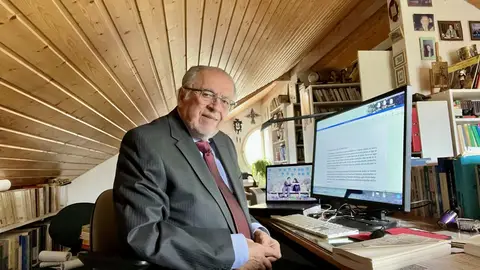Current Issues in Criminal Policy
(Summary in English of the editorial)
This volume emphasizes that criminal policy, both in Peru and internationally, is characterized by overcriminalization and an increased reliance on incarceration. This approach is exemplified by recent penal reforms in Peru, enacted through legislative decrees that grant extensive powers to the executive branch. This phenomenon is analyzed as an example of the tendency to "govern through crime," where public policy is aligned with a social demand for strict crime control, leading to a criminal policy that serves governance interests more than justice itself.
Each contributor to this volume addresses different aspects of this reality:
- John Vervaele trend toward excessive securitization and pre-criminalization, which transforms criminal law into a tool for security policy.
- Víctor Prado Saldarriaga examines recent developments in combating money laundering, highlighting persistent challenges despite legislative reforms, and calls for greater efficiency in criminal policies.
- Marcial Páucar deals with issues related to lobbying and political party financing, advocating for a reform that would allow better management of interests in a context of political corruption.
- Ramiro Salinas Siccha explores challenges in enforcing laws against corruption, highlighting the difficulty of distinguishing between authors and accomplices in crimes involving multiple actors.
- Caty Vidales discusses the influence of the media and public opinion on criminal policy, showing how this influence can lead to more reactive than proactive policies, often to the detriment of justice.
- José Luis Díez Ripollés criticizes the socially exclusive effects of penal excess, particularly on suspects, convicts, and ex-convicts, calling for a reevaluation of punitive practices.
- Percy García Cavero analyzes the criminal responsibility of legal entities, a relatively new concept in legal systems inspired by European continental law, emphasizing the need to adapt criminal law to the modern realities of corporate activities.
- Laura Zúñiga highlights the importance of corporate criminal liability for human rights protection, indicating that criminal sanctions can be an effective tool against serious rights violations by economic actors
- Antonio Peña Jumpa offers a reflection on criminal policy in diverse social and cultural contexts, suggesting that the current model, based on a homogeneous society, is ineffective in diversified contexts.
- José Hurtado Pozo criticizes the lack of consideration of social, political, and economic factors in designing criminal policy, advocating for a more informed and contextualized approach in the creation of laws and penal practices.
Each of these articles contributes to a more nuanced and critical understanding of criminal policy, in the hope of promoting a more just and appropriately tailored application of the law to contemporary social and cultural realities.


